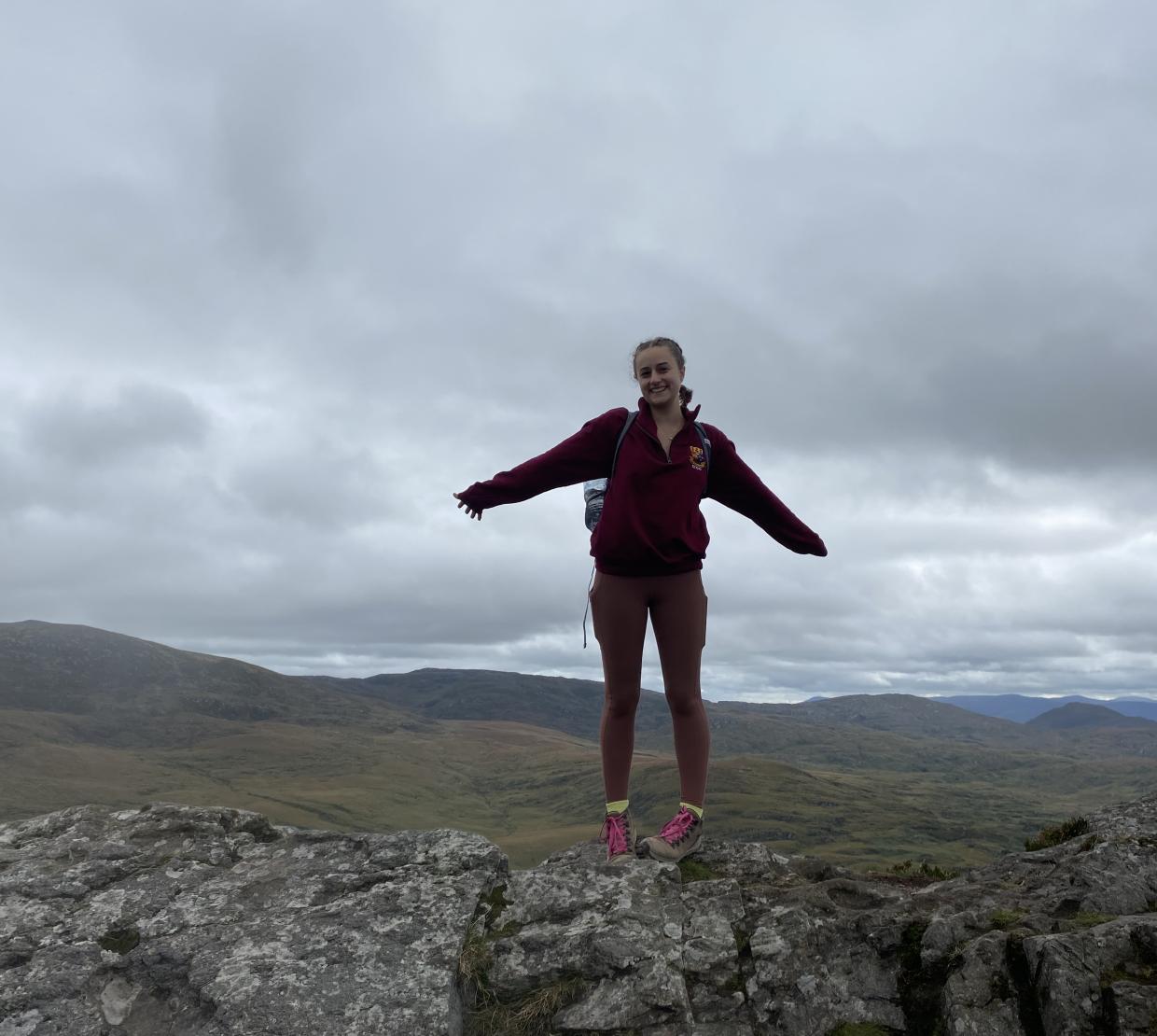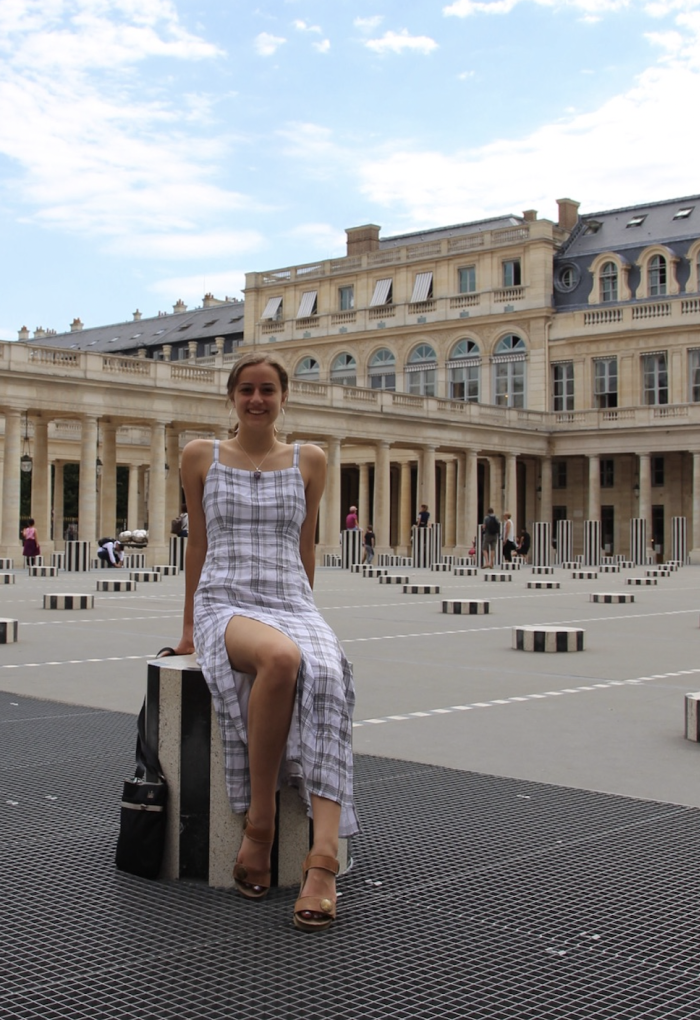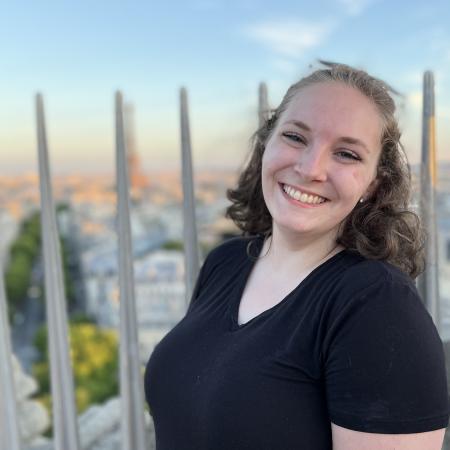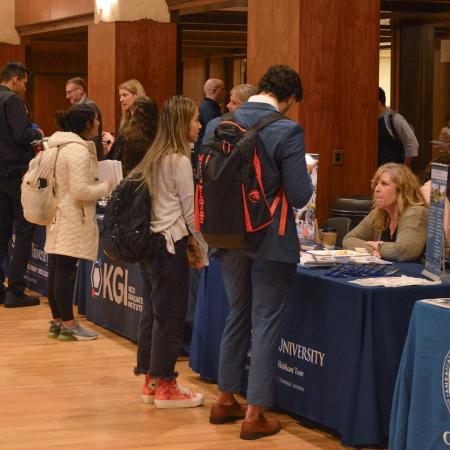Lice: creepy, crawly, but to a young Amelia Noall, fascinating.
Memories of getting lice in elementary school aren’t usually fond ones, but after she was gifted a microscope by her mother, the experience became an early sign of Noall’s eventual major.
“There was an outbreak at my school, and of course I got it. But I started looking at the bugs through my microscope and thinking, ‘Wow, these are so interesting!’” she recalled. Her natural desire to explore paired well with the smaller, unseen parts of the world around her. As she followed her curiosity, picking leaves from the ground and examining their hidden structures through the microscope lens, she unknowingly paved the way toward her time as a microbiology major — and now senior — at Oregon State.
Exploring the little things
Leaving Portland, Oregon to start her first year of college, Noall decided to major in biohealth sciences, set on pursuing forensic anthropology. But she later felt drawn to naturopathic medicine, and after that, realized she didn’t have a particular goal in mind.
“Being here exposed me to a lot more than I had ever really seen,” Noall said. “I wasn’t sure what I wanted to do, but I wanted to keep exploring.”
She began diving head first into science at Oregon State, fitting as many clubs and classes as she could into her schedule, and eventually stumbled upon the microbiology major. Just as the shapes and forms of small organisms had captivated her as a child, microbiology caught her attention for a similar reason.
“I actually chose microbiology because I think that microbes are cute,” Noall said, laughing. This unassuming interest appealed to her enough that she decided to commit. With a final switch of her major to microbiology, she soon found herself appreciating microbes for much more than how they looked.
"Bacteria live on us, in us. We’re about as much microbe as we are human.”
You may not see microbes as often as you would birds hopping between tree branches or squirrels darting across sidewalks, but they exist nonetheless in a subtler way throughout all habitats, too small to be seen by the naked eye. Despite their tiny stature, the importance they carry is immense.
“The amount that microbes could make or break our future is incredible,” said Noall. “Microbes are what we think of as the most simple organisms, but they are so complex and amazing at what they do. Bacteria and phytoplankton and zooplankton could help us a lot with climate change. If your gut microbiome is off, it can cause you to have new food allergies. Microbes are something so small that you can’t see them, yet they can affect not only the environment but us too.”
Before studying microbiology, Noall’s view of microbes was much narrower. “I definitely thought before that bacteria were just something you kill with antibiotics, but they help us a lot more than they hurt us,” she said. “Bacteria live on us, in us. We’re about as much microbe as we are human.”
She decided that the major would never be boring and always give her a new question to ask, and chose to continue studying it through college. “I started for the appearance of the microbes and how cool they seemed, and I think I stuck with it for how interesting they are and how in-depth microbiology goes,” she said.
To speak the language
As time has gone on, Noall has developed more passions outside of microbiology. She has often felt pulled in many directions, which was amplified by the vast spread of opportunities available on a campus as large as Oregon State.
“It’s a big school and there’s so much to do, and I wanted to fulfill all those desires in me to learn all I possibly could,” she said.
One of those desires would weave together nicely with her love of language. Beyond the facts and figures of science, Noall carved out a slice of her time to dedicate wholeheartedly to studying French. The language had long been a cherished hobby of hers, but she never intended to continue learning it in college.
“It wasn’t originally my plan to have a language component, but I took the language test before I came here and I ended up speaking to one of the French professors before school started my first year,” she explained. She learned that she would only need two years of French classes in order to minor in it thanks to her having studied French through all of high school. The decision to commit to the minor nearly made itself, but Noall had more reason than simply adding another point to her resume.
"My experience with it has been so great. Maybe that’s the reason I fell in love with language.”
“It wasn’t about getting the minor for me,” she said. “One big reason behind it was my French classes were really small, maybe 14 to 16 people, and I liked having a smaller community within a bigger community. All of the French professors are also so kind and amazing, and I guess that’s why I chose to stay in it.”
To Noall, the professors she has had in her time learning French have been the main force shaping her relationship with the language. “I think that a teacher can make a class. I feel like a lot of the classes that I’ve fallen in love with were because of the teacher, and maybe that’s why I love French so much — because my experience with it has been so great. Maybe that’s the reason I fell in love with language,” she said.




